6 start with N start with N
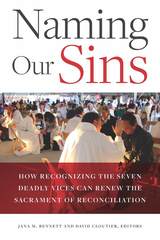

Germain Grisez has been a leading voice in moral philosophy and theology since the Second Vatican Council. In this book, such major thinkers as John Finnis, Ralph McInerny, and William E. May consider issues in ethics, metaphysics, and politics that have been central to Grisez's work.
Grisez's reconsideration of the philosophical foundations of Christian moral teaching, seeking to eliminate both legalistic interpretation and theological dissent, has won the support of a number of leading Catholic moralists. In the past decade, moreover, many philosophers outside of Catholicism have weighed carefully Grisez's alternatives to theories that have long dominated secular moral philosophy.
This book presents a broad spectrum of viewpoints on subjects ranging from contraception to capital punishment and considers such controversies as the scriptural basis of Grisez's work his interpretations of Aquinas, and his new natural law theory. The collection includes not only contributions from Grisez's supporters but also from critics of his thought, from proportionalist Edward Collins Vacek, SJ, to the neo-Thomist Ralph McInerny. A reply by Grisez, written with Joseph M. Boyle Jr., addresses the issues and viewpoints expressed, while an afterword by Russell Shaw reviews Grisez's pioneering work and conveys a vivid sense of the philosopher's personality.
As Grisez's influence grows, this volume will serve as an important touchstone on his contributions to moral and political philosophy and theology.
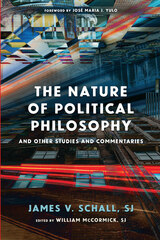
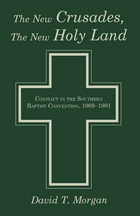
Examines the conflict between modern-day Southern Baptists and “liberal” Southern Baptists over control of the Southern Baptist Convention
David Morgan captures the essence of the conflict between some modern-day Southern Baptists, who saw themselves as crusaders for truth, as they sought to redeem a new holy land--the Southern Baptist Convention-- from the control of other Southern Baptists they viewed as "liberals." To the so-called liberals, the crusaders were "fundamentalists" on a mission, not to reclaim the SBC in the name of theological truth but to gain control and redirect its activities according to their narrow political, social, and theological perspectives. The New Crusades provides a comprehensive history of the conflict, taking the reader through the bitter and divisive struggles of the late 1980s, that culminated in the 1991 emergence of a moderate faction within the SBC. The fundamentalists had won.
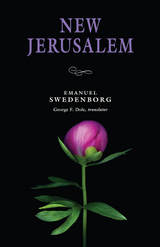
Emanuel Swedenborg understood the city of New Jerusalem--as described in the book of Revelation--to mean not a physical city but an epoch of history, a new spiritual age that was just beginning to take shape during his lifetime in the eighteenth century.
This short work, presented as a series of teachings that characterize this spiritual age to come, is also one of Swedenborg's most concise and readable summaries of his own theology. Building on fundamental concepts such as good, truth, will, and understanding, he describes the importance of love and usefulness in spiritual growth. In the second half of the volume he focuses on how this new theology relates to the church of his day and to church teachings about the Bible, the Lord's incarnation on earth, and rites such as baptism and the Holy Supper. Each short chapter is followed by extensive references back to his theological magnum opus, Secrets of Heaven.
This volume is an excellent starting point for those who want an overview of Swedenborg's theology presented in his own words.
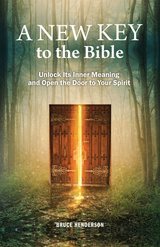
In his vast writings, eighteenth-century spiritual teacher Emanuel Swedenborg offers clarification: beneath the often-confusing literal text of the Bible is a clear inner meaning that directly points to an inclusive, always-loving, always-present God. In A New Key to the Bible: Unlock Its Inner Meaning and Open the Door to Your Spirit, author Bruce Henderson guides the reader through Swedenborg’s interpretation of the Bible, offering up a thought-provoking yet digestible way to understand the Creation story, as well as other famous parables such as Adam and Eve, Noah’s Ark, Abraham and Sarah, Moses, the life of Jesus, and the apocalyptic imagery of Revelation. At each step of the way, Henderson shows how these Scripture stories written thousands of years ago reflect our own spiritual paths and give meaning to the challenges we face along our journey in the present day.
For readers new to Swedenborg, A New Key to the Bible serves as an overview of the thousands of pages Swedenborg wrote about the inner meaning of the Bible. For spiritual seekers who feel a connection to the Bible but are sometimes troubled by its contents, Swedenborg reassures with a transcendent level of understanding about how God wants to inspire us through sacred text.
READERS
Browse our collection.
PUBLISHERS
See BiblioVault's publisher services.
STUDENT SERVICES
Files for college accessibility offices.
UChicago Accessibility Resources
home | accessibility | search | about | contact us
BiblioVault ® 2001 - 2024
The University of Chicago Press









